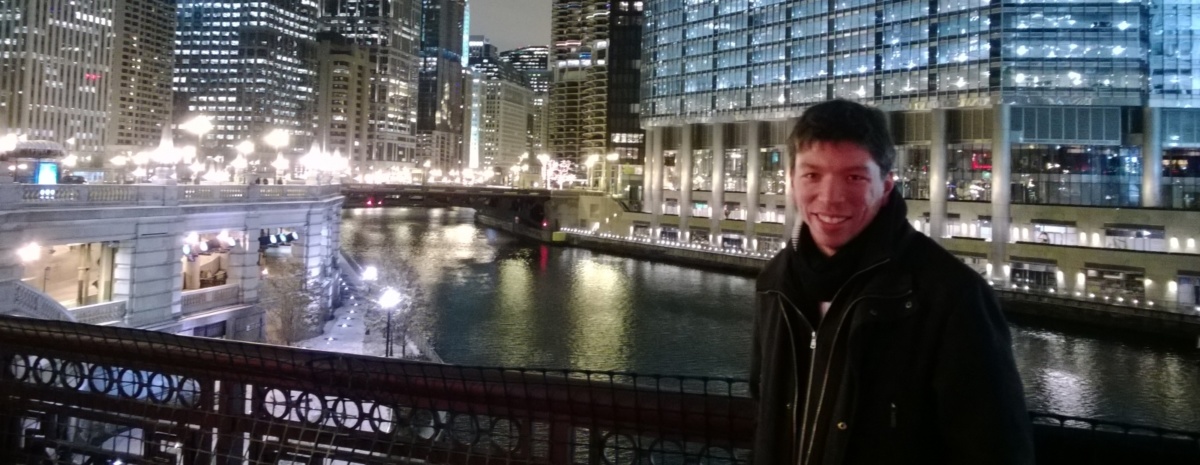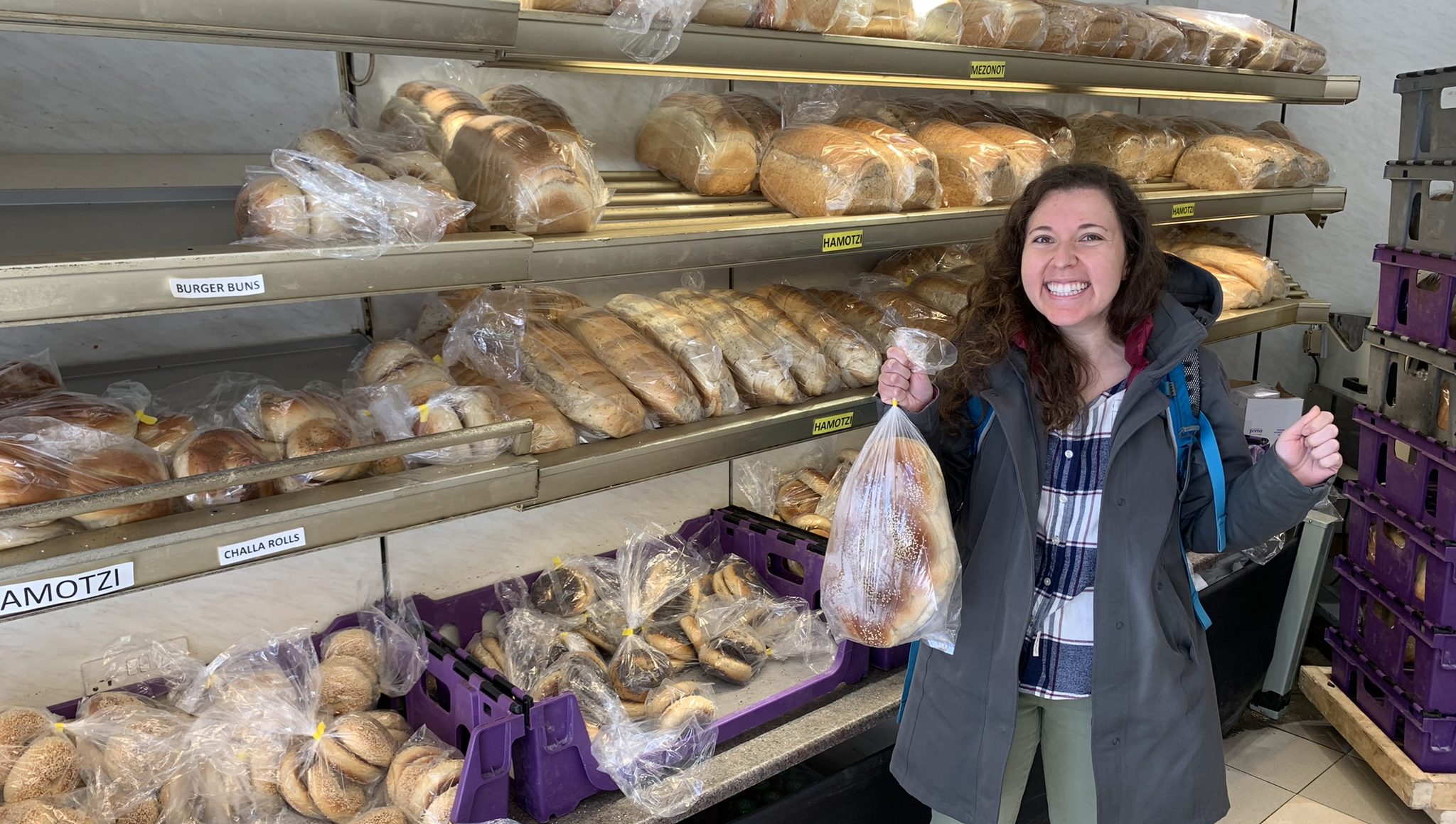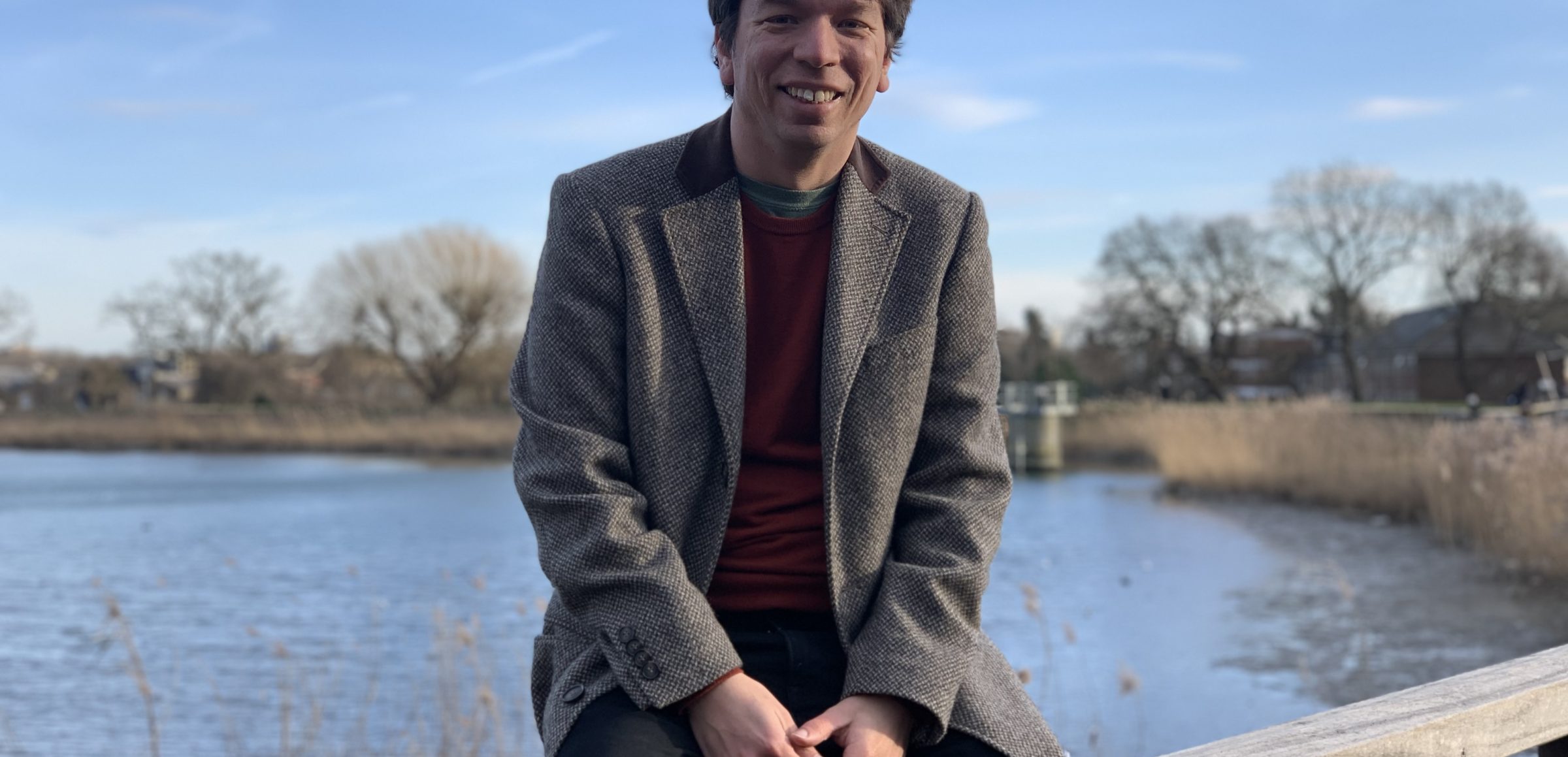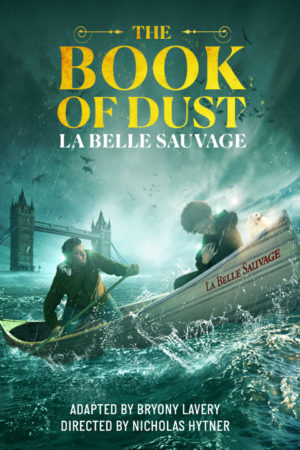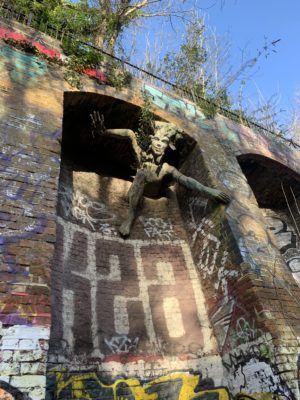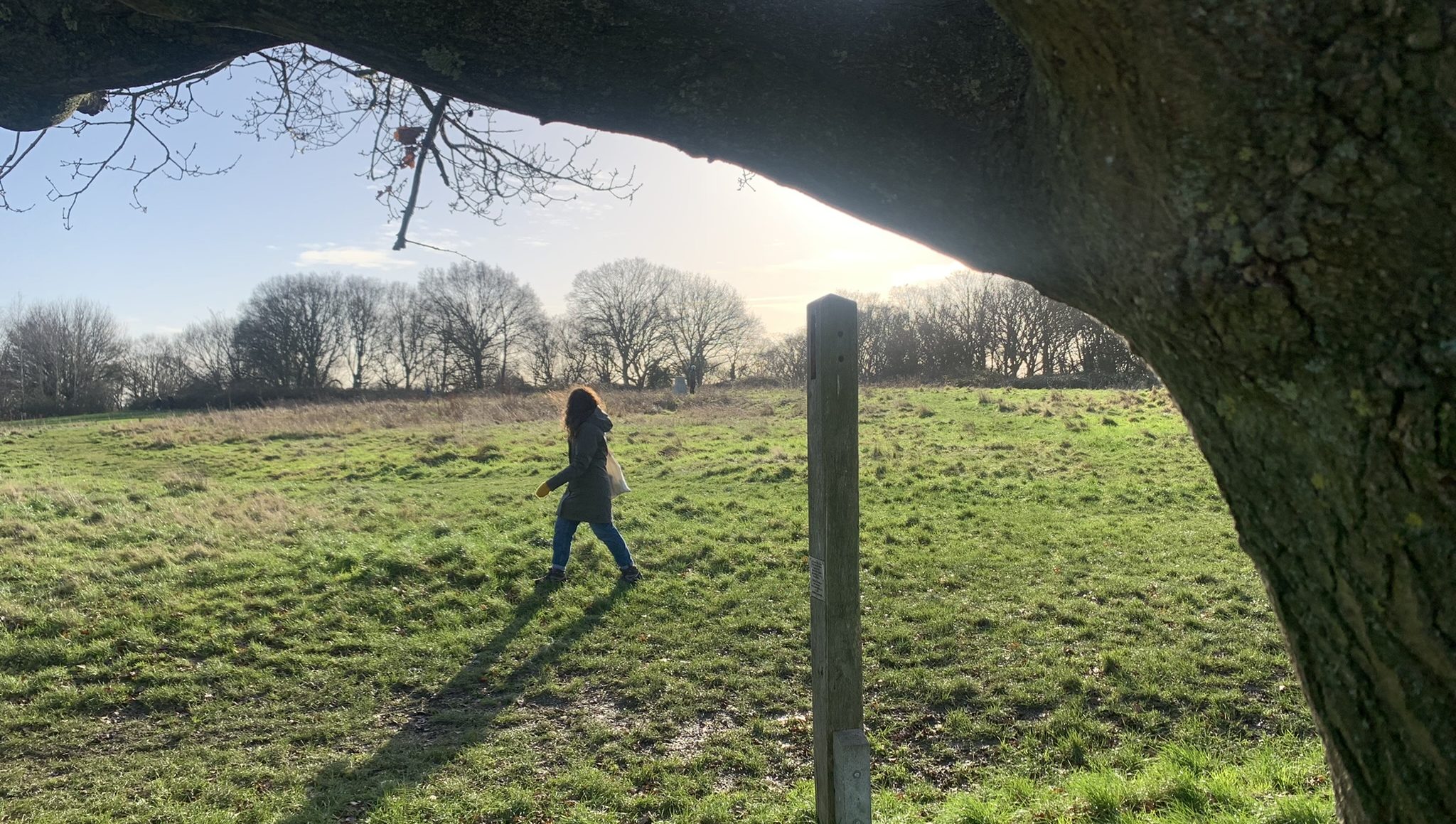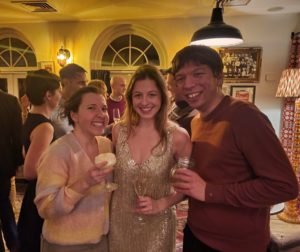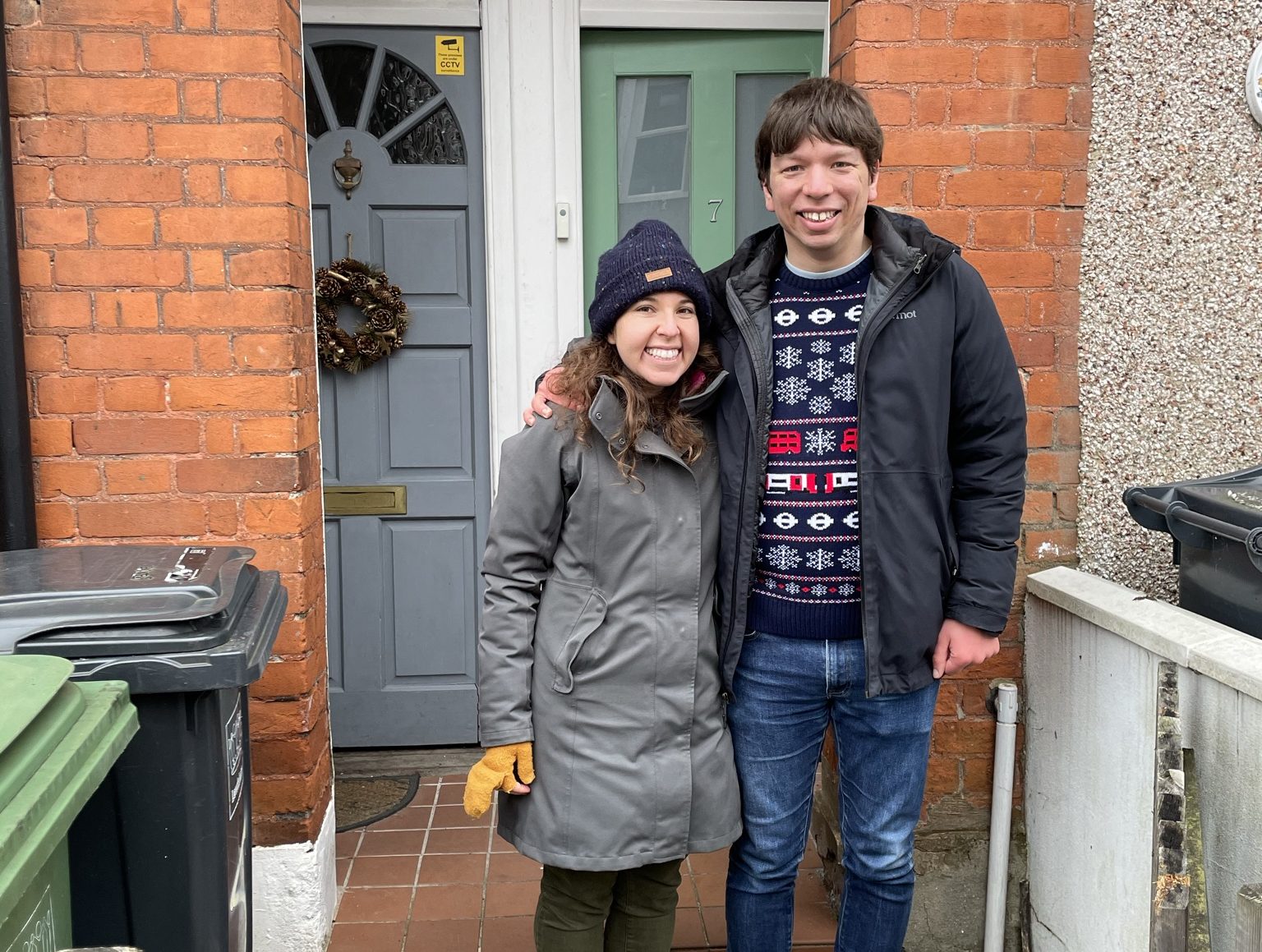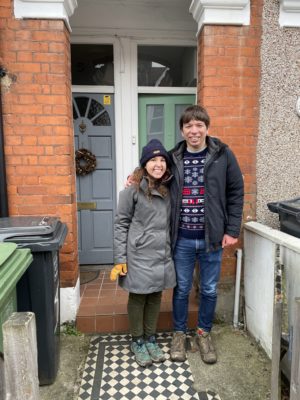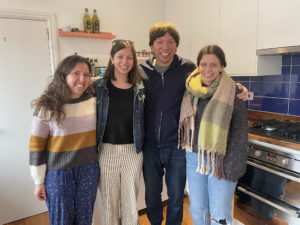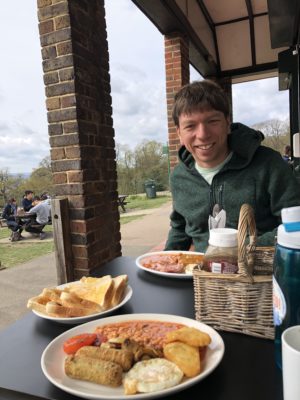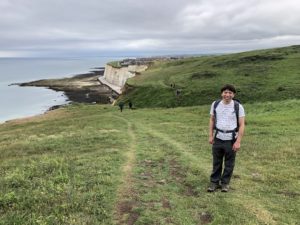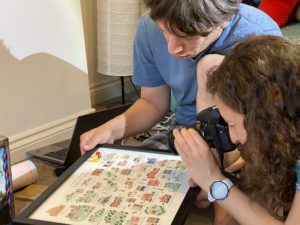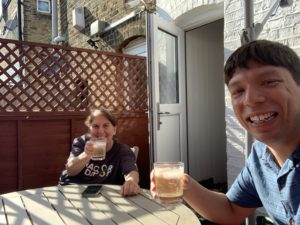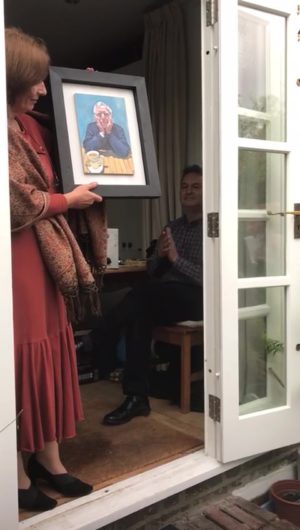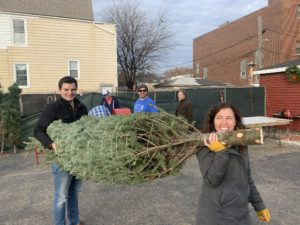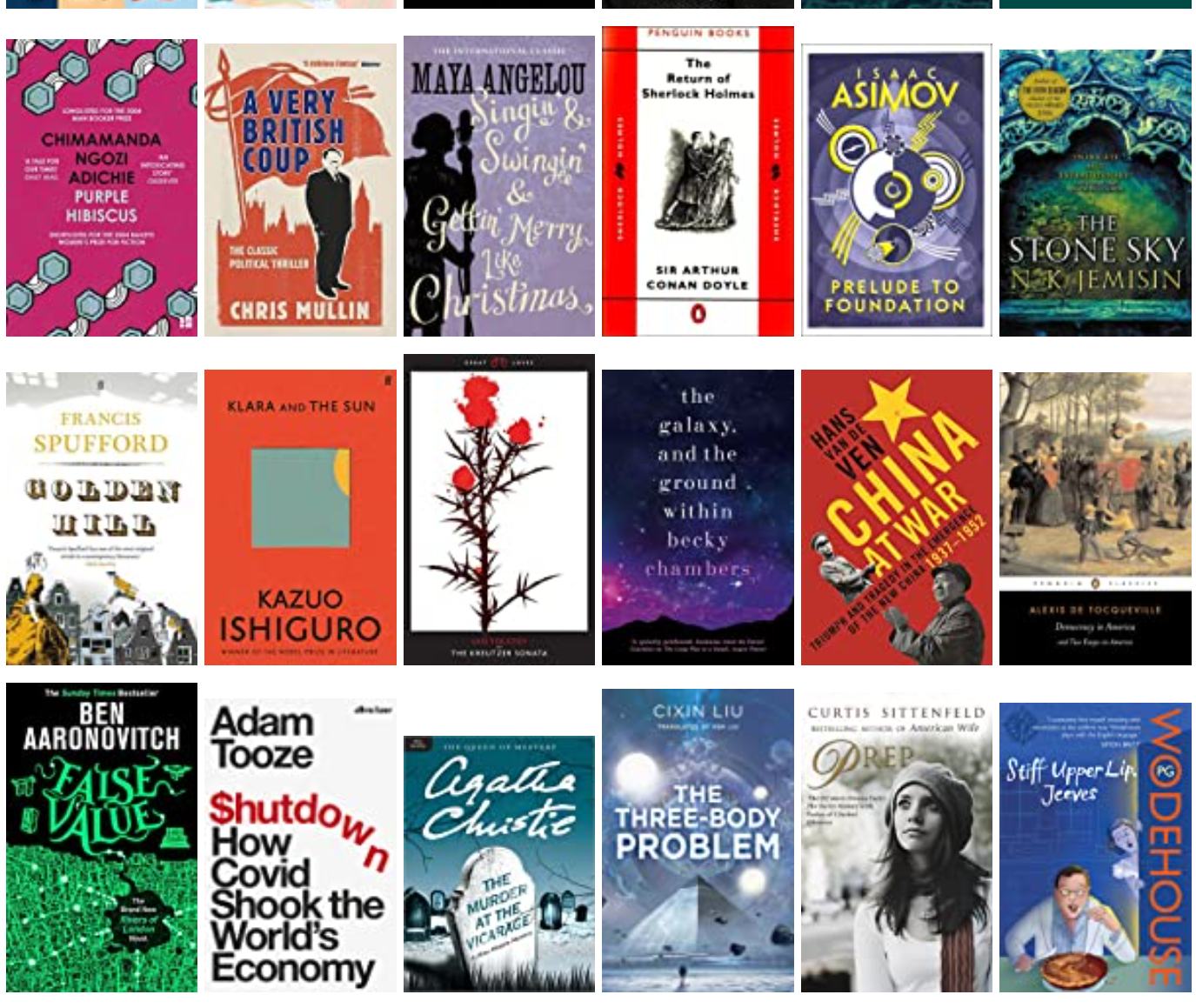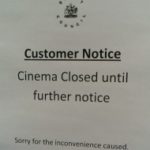It’s been a strange couple of weeks, and not in a good way. Russia’s invasion of Ukraine has directly affected the lives of people I’m close to and care a lot about. They aren’t on the frontline, but they are affected all the time. At the same time, Randi and I finally caught Covid, although in my case I’ve had (almost) no symptoms at all other than a certain quiet satisfaction that, yes, at least I have been administering these lateral flow tests on myself properly all this time. Unfortunately Randi didn’t get off quite as lightly, although she is OK and is now fully on the mend. But the coincidence of these two things has resulted in a weird atmosphere of being stuck inside, worrying about people over WhatsApp and watching news reports of advancing armies and bombed-out cities.
Away from the war itself, I do recommend the documentary F@ck This Job, available in the UK on BBC iPlayer as Tango With Putin, as another angle into modern Russia. It’s the story of independent TV channel Dozhd (or TV Rain) which you may remember from the clip of its staff walking off set together as the station was shut down at the beginning of March. Its founder, Natalya Sindeyeva, is a fascinating leader and the documentary is worth watching for her alone.
We had planned to visit Katie in Glasgow – a city which I’ve still never visited – but for obvious reasons this was postponed. Instead, we have at least been escaping to Victorian London by getting into a nice habit of reading Sherlock Holmes aloud in the evenings. It’s extremely comforting when a character from the nineteenth century rides a familiar train from Norwood to London Bridge.
Before this current phase of isolation, we did have a few lovely get-togethers to write about. Abbi visited us two weeks ago for a Friday night sleepover, followed by a Saturday morning run with Randi and then breakfast together at the Lazy Chef. The next day, we travelled up to Golders Green for the triple delights of brunch with Josh, Anna and Cora at Soyo, a wander around Golders Hill Park and – of course – a trip to Carmelli Bakery to stock up on challah. I also had a much-needed night out in a pub with Clark and Matt, where we only spent some of the time talking about nuclear weapons, and even very briefly went back to the office (!) to link up with Jill and Lee on some work-related visits. (No no, don’t try and amateur track-and-trace this paragraph. I definitely got my Covid from Randi…😇)
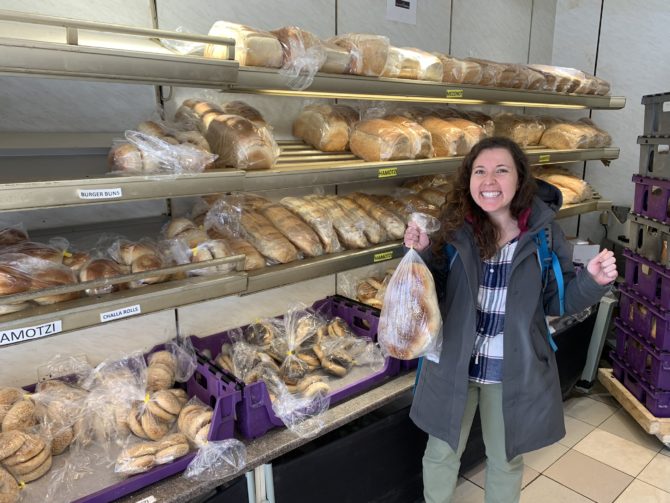
Last night, my mum treated Tash, Cormac, Randi and me to a delayed Christmas outing to see The Book of Dust – La Belle Sauvage at the Bridge Theatre. This was exciting on many levels, not least because – discounting our immersive Time Fracture experience at Christmas – this was my first time back at a theatre since Covid began. But going much further back, I can still picture the library in the attic of my primary school where I first laid eyes on Philip Pullman’s Northern Lights, and there’s something special about being part of an audience with equally long memories of Lyra and Pan gallivanting around Jordan College. This production itself was also excellent, with Samuel Creasey giving an especially good performance as the bright, confused, hungry and heroic 11 year-old Malcom Polstead who protects the life of baby Lyra in his canoe during a great flood.
It’s much harder to imagine the second book in the trilogy, The Secret Commonwealth, being staged with the same uplifting energy given how much sadder and more melancholy it is. We shall see!
The last few weeks haven’t been that busy, but a few weeks ago we did gain a civic participation brownie point by attending a (virtual) Perry Vale community meeting. Ostensibly the purpose was to discuss the allocation of a pot of funding between a long list of worthy-sounding community projects, but – in a familiar problem – there’s no way I’m actually in a position to have an informed opinion about which projects are worthier than others. So we skipped this part, and joined instead for a presentation from Lewisham’s directly-elected mayor, Damien Egan, on the council’s overall budget and objectives. There are pros and cons to directly-elected mayors, of course, but at a basic level it is satisfying to have ‘a leader’ who can articulate in one voice what the council is doing. (Obligatory snarky comment about London boroughs: just maybe not 32 of them.)
At the other end of the democracy spectrum, Randi and I finally finished watching The West Wing after setting out on this adventure in (*checks blog history*) July 2017. Hey, that’s still faster than watching two Presidential terms unfold in real time! There’s a lot to love about The West Wing, and a lot to roll your eyes about, either because it’s based on completely false premises or (more prosaically) because whole characters and story arcs have a habit of vanishing into thin air. But I miss it now it’s gone. The other night, while Randi was out, I filled the gap by watching a few classic episodes of The Simpsons which I haven’t seen for years and years and was pleasantly surprised at how they can still make me laugh out loud, even something as simple as Homer making a phone call to Japan. (If you want to feel old, read the YouTube comments where the concept of an expensive long-distance telephone call has to be explained. )
We also hosted Kirsty and Roger at ours for a lovely evening of arguments about politics and culture, followed by a great Sunday afternoon at Matt and Laura’s in which I tried to suppress my envy that Cress still gets to have Calpol when she’s sick. Meanwhile our new tradition of Friday night food exploration has included sharing plates in Peckham (from a baseline recommendation of 4-6, we ordered 8), an amazing Georgian restaurant in East Dulwich and – as a reward for persevering through hail the night of Storm Eunice – The Herne Tavern. (Yes, obviously we stayed indoors for the red weather warning bit. Our fence, on the other hand, mounted an invasion attempt into the neighbour’s garden and is now a high-priority item to fix.) Last, but not least, we also tucked into an amazing pastry-crusted fish pie at mum’s at the latest London Supper Brunch Club.
And, yes, obviously we’ve kept walking the Capital Ring too. Recent sections have taken us via muddy Fryent Country Park (is it ever not muddy?) to Barn Hill – where my dad used to take us as kids all the time – and the Welsh Harp (much lovelier than Mr Birch’s secondary school assemblies about murder made it out to be) and later Highgate Wood (delightful, although Tash has since reminded me that this is where the worst dogs of our childhood appeared) and the wonderful Parkland Walk south to Finsbury Park. In case you can’t tell, I’m enjoying all of these North London bits, but the last one was especially exciting for being an old railway route, with the tracks now lifted, but which would be part of the Tube’s Northern line today had the Second World War not intervened.
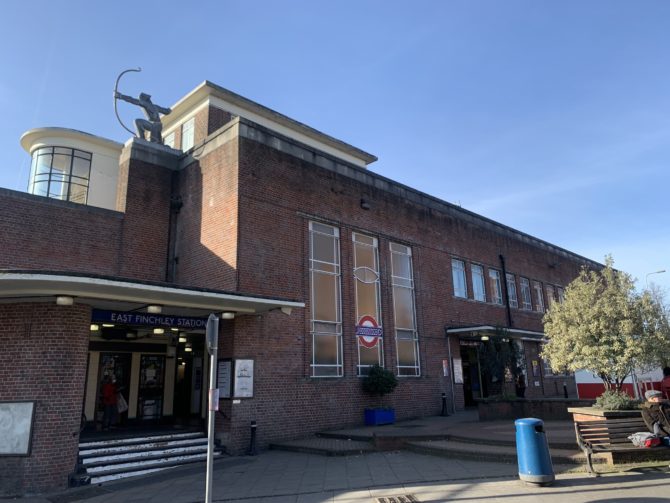
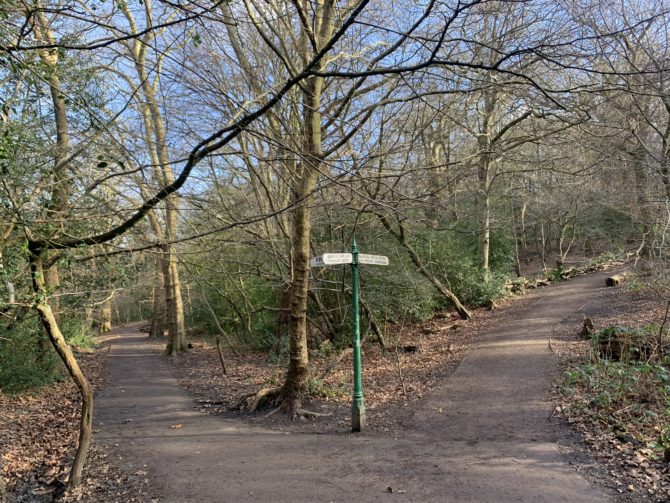
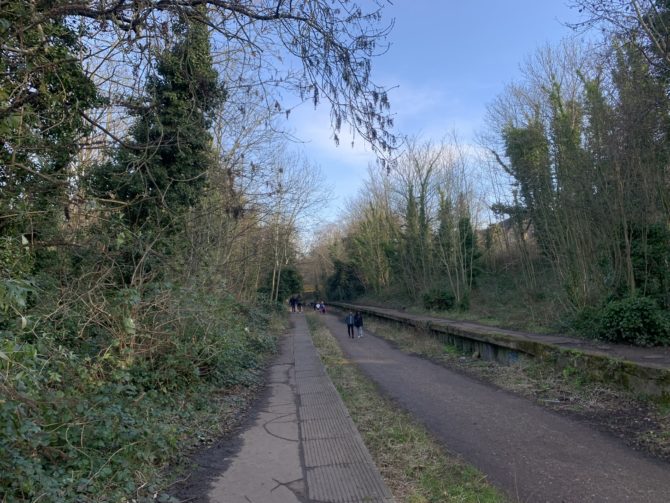
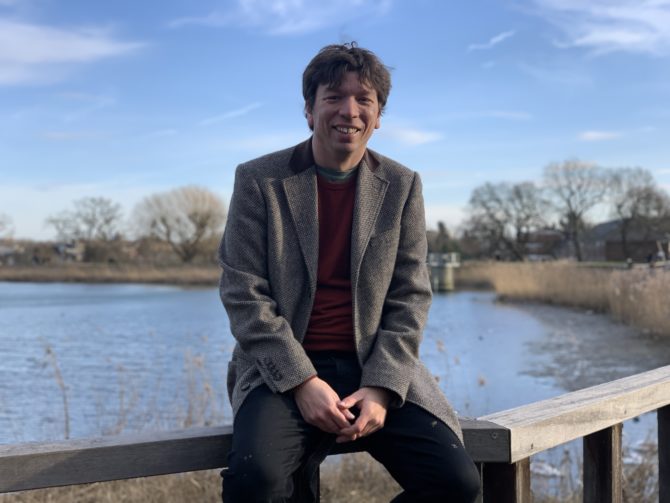
December blogs are frantic while January blogs are chilled: that’s just the way of the world. We haven’t had any dramatic adventures so far this month, but 2022 did get off to a really lovely start when we hit the Capital Ring on New Year’s Day for fresh air, muddy trails and the familiar Grand Union Canal. That evening we settled down for Doctor Who’s Eve of the Daleks– romantic comedy plus time loops plus Aisling Bea plus Daleks, of course – which instantly became one of my favourite Jodie Whittaker episodes of all time and certainly one of the show’s most satisfying festive specials.
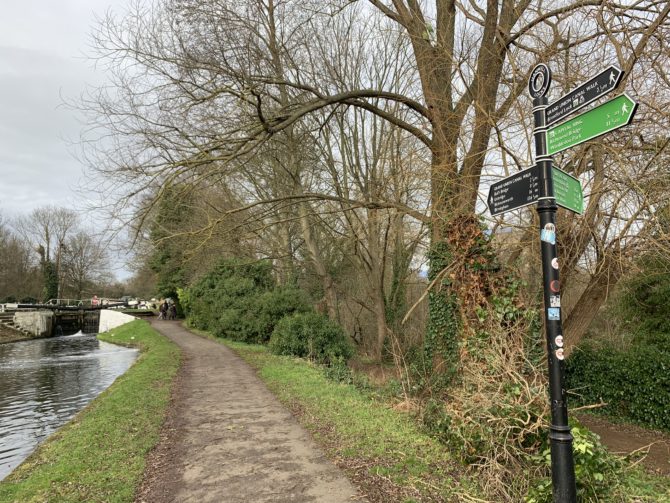
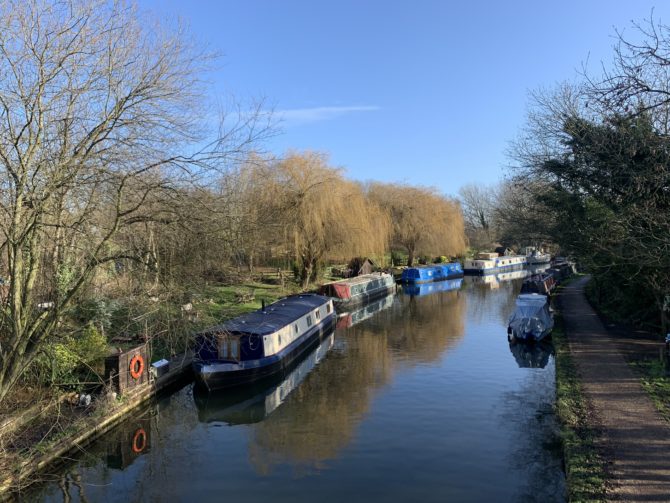
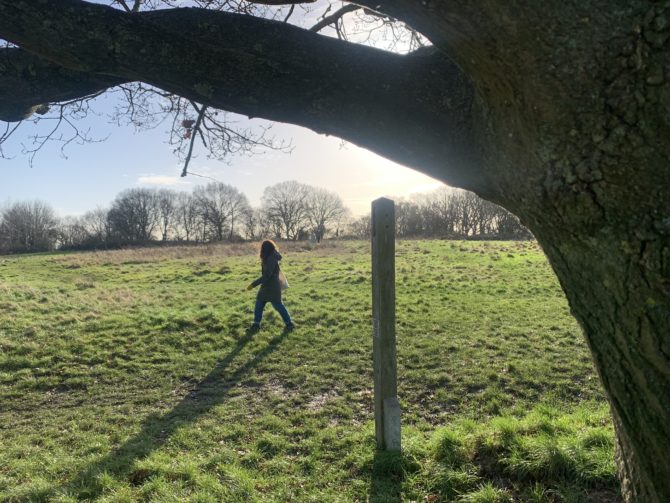
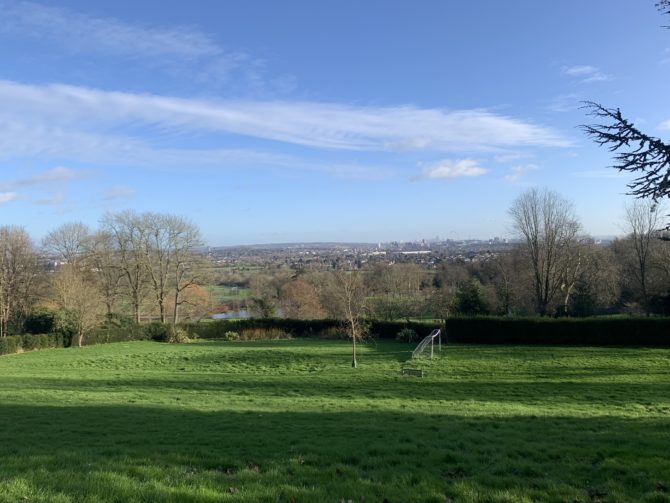
Otherwise we’ve mostly been staying warm and cosy indoors, watching the new series of Would I Lie To You?, cracking open the Dominion: Adventures board game expansion, making tremendous progress with the final season of The West Wing (the end is in sight!) and enjoying David Attenborough’s home videos of plants The Green Planet, albeit without entirely accepting the premise that time-lapse photography of aggressive water lilies can ever quite match footage of animal interactions. We’ve also continued to expand our repertoire of local food places which we love and cherish: from The Lazy Chef by Forest Hill station to Malaysian food near Crofton Park and (slightly further afield) sharing platters at Tupi in Peckham. It might sound obvious, but it’s funny to realise that the owners of the restaurants and cafés in Forest Hill all know each other, and London really is a huge collection of urban villages after all.
Last weekend, we also went over to Erin’s extraordinary time-portal flat by Hampstead Heath for mimosas and a delicious shakshuka brunch – courtesy of Antonis – before an invigorating walk around the Heath with the two of them plus Erin’s dog Diva, who it was a pleasure to finally meet. Even after we had collectively put the world to rights Randi and I still weren’t done with the walking, so we headed to Charing Cross on foot before finally catching a train home. It’s fascinating to be reminded, or perhaps discover for the first time, how the areas of London I’ve always known (Hampstead Heath, Camden, Euston, Oxford Street) actually link up together.
Finally, last night we attended Caroline’s ‘leaving party’ (basically just an excuse for a party, without any long-term ‘leaving’ actually taking place) which was lovely, and – in a way which feels like a novelty now! – an actual party where you quickly find yourself in a crowd of people you’ve never met before. Personal highlight: being momentarily taken aback when a guy leaned over and confessed, somewhat conspiratorially, that he was also a Labour party member. I’m not sure this has happened to me at any of Caroline’s events before.
This was a quite a year – a year of making plans, reunions and saying goodbye. I’ll always remember 2021 as the year my dad died. But it was also the first year Randi and I spent together in our new home, the year we started to prepare for our wedding and the first time we made it back to the US since 2018.
January
It’s a sign of how topsy-turvy 2021 has been that I had to find a timeline with all of the UK’s lockdowns to help me remember what on earth was happening at the start of the year. We were all in ‘tiers’, remember? The whole of London was already in ‘tier 4’, so we stayed firmly outdoors during my mum’s sneaky New Year’s Day visit to see our new flat from the outside, swap Christmas presents and do some exercise around Beckenham Place Park. Present exchanges were also completed with Tash and Cormac in Deptford Park – we had gotten used to walking pretty far – before the third national lockdown began. By that point the the mass vaccination programme was ramping up, which was wonderful, but Randi and I had a while to wait, and in January we mostly did that waiting indoors. There were local trips to bury our tree at the Christmas tree graveyard or bask in the one day of snow, while a virtual highlight was Simon’s Zoom night with lots of fun and games and jokes at my expense. Randi and I also did a lot of furniture assembling as various pieces started to arrive (most importantly, a railway information board!) and aggressively congratulated Matt and Laura through the post to make up our greeting card deficit.
February
This is the most difficult month to summarise, because towards the end of February was when my dad died. I remember my mum’s phone call – when it was not at all clear what was happening – and making the decision to go over that night, which meant catching a train from Forest Hill station for the very first time. (This felt like an important test of where we had chosen to live.) I picked up chips from Big Bite, got home, and over the course of the evening my sisters started making their way home too. Then, for a little while, six of us lived together in a house where every conceivable object became a vase for flowers.
March
We held a Covid-sized funeral for dad on 19th March, with a larger gathering planned for later in the year. In the meantime, Randi and I continued our extended exploration of the ‘local’ area on foot, making it as far as Kelsey Park in Beckenham and Blackheath. We also hosted my family for a sneaky brunch and/or excuse to see our flat for the first time, followed by a trip down our beloved Waterlink Way to Blythe Hill. March was also the day of the Census (so we can finally stop using population figures on Wikipedia from 2011) and, on 29th March, the end of the final lockdown, which might help to explain why the next paragraphs are about to get longer…
April
One morning in April I came downstairs to discover that – while I was in the shower – our sofa had arrived early and been placed in our living room, meaning the beanbag days were officially over! Talking of home, this month we were also diligent in having made waterproof (a key attribute for a shower) and retiled (after many hours of tile selection) as well as finding our first Easter Egg hiding spots and welcoming Chris for lunch in the garden. But we also used our newfound freedom to eat at the Mayflower with Tash and Cormac, walk the Chess Valley with Erin (followed by tea, cake and dinner at my mum’s) and enjoy an impromptu pint in Beckenham Place Park after work. April was also when we got to meet Cress for the first time in Matt and Laura’s garden, hung out with Kirsty, Roger and Irn Bru in Peckham Rye Park, and generally blitzed through local restaurants like they were newly legal. Which they were.
May
Throughout 2021 the age for vaccine eligibility had been slowly dropping… until one morning in May I woke up and discovered my turn had arrived. I booked my jab at Guy’s Hospital, and it was a surreal moment when it finally happened. Josh was already ahead of the game so earlier in the month we had celebrated his second dose with a post-vaccine pint before playing with Cora in her ball pit. In return, they visited us for a wonderful Bank Holiday afternoon at the end of May, also triggering a mad, unsuccessful dash to Twickenham Stadium for Randi’s vaccine afterwards. Vaccine or no vaccine, May was actually pretty packed. We started the Capital Ring walk – shout-out to Oxleas Wood Cafe! – and meandered through the Chilterns with Erin, encountering some sheep and a lot of bluebells. We also turned up to Jason and Carrie’s wedding in pyjamas by mistake, journeyed to Romford to meet baby Cleo, spent an evening with Jamie at Ladywell Tavern, voted in the delayed mayoral election (admiring the primary school artwork as we did), remain disappointed by the other major contest of the month (Eurovision – Italy – really?), met new cousin Austin for the very first time and returned to eat at The Garden after crossing our fingers it was still around. I also had drinks with Steve and Justin, which I felt afterwards, and also with Jill, Lee and Sally for a mini work reunion. And finally, for Randi’s birthday we had a series of celebrations: brunch at Dishoom followed by a walk up Primrose Hill, a visit to the Shard (Randi’s Shard) after lunch at Borough Market with Matt Hull, and a joint birthday dinner for Randi, Tash and mum at The Narrow at Limehouse. Unlocking complete!
June
One of my favourite moments from June escaped this blog at the time, because it was an early part of wedding preparation and still a secret. For my birthday, Randi had taken me on a surprise trip to Seaford so we could return to The Grumpy Chef. The next day we decided to walk to Brighton, and arrived in our characterically attractive combo of sweaty clothes & backpacks. Lured by the jewellery shops in The Lanes, this suddenly seemed like a great moment to buy a ring. So we ended up inside a fancy ring shop, where after listening to all of Randi’s preferences, the woman gently explained that we would be better served by the quirky, bohemian place down the road. And we were! The next day we went up to Hereford, fell in love with the wedding venue immediately and started to firm up our plans. Also this month: I resurrected Doctor Who nights with Katie virtually, saw my first-ever live football match at the Euros with Lee, got my second MMR jab 29 years late and finally visited Oliver and Abi’s beautiful house and garden. We also celebrated my birthday a couple more times – a parlez brunch, and an incredible tasting menu on an old Victoria line tube in Walthamstow with Tash and Cormac – and had drinks with Eric and Tomas on Eric’s personal tour of his local pubs. Finally, we were very sad to miss Catherine and AJ’s wedding in person, but did livestream the ceremony and cheered them on from afar.
July
Towards the end of July our house became a prison camp for Randi’s parents during their quarantine phase, punctuated only by trips to Croydon. But we kept them busy with garden work and meeple photography before their release, after which we took the first of several UK mini trips to Brighton to pick up Randi’s ring and get attacked by a malicious seagull. Before their arrival, highlights included watching the Euros quarter final with mum, meeting baby Austin properly at Alix and Adam’s house, having a great catch-up with Promise at Bob’s Cafe in Queen’s Park and having another catch-up for after an even longer gap with Catherine and Hitesh at the intimidatingly trendy Limin’ Beach Club on the South Bank. We also gave Carolyn and Maria a historically accurate tour of Crystal Palace Park, welcomed Caroline and Josh to our flat with a last-minute parasol purchase and had a lovely evening in Streatham with Reema and John. I also grabbed drinks with Clark in Leytonstone (ordered some food, intended to share, definitely ate it all before he arrived) and got my second vaccine dose, which retrospectively seems less exciting now that it’s 2/3 rather than 2/2 but did involve me standing in the rain lamenting to Kira on the phone that everybody else in the queue was smart enough to bring umbrellas. And two more unusual activities: kayaking down the Thames over an evening with Tash and Cormac (which was beautiful) and playing an online Jury Duty game in which we formed a pretty effective team with a group of strangers to (almost!) discover the truth of the case. Obviously I’ll never meet these people again, but I hope they’re doing well!
August
Having busted out of prison, Beth and Stewart’s top London destinations branched out from Croydon to include dinner at Sanzio in Willesden, Cubana with Katie, The Mayflower with Tash and Cormac and a trip to meet Cora at Josh and Anna’s in Kingsbury. We also ate a lot of tapas and drank a lot of gin in Hereford, returned to last year’s pub garden of joy in Church Stretton and admired Randi’s punting skills along the Cam in Cambridge. While in Cambridge I also swapped notes on my favourite podcasting academics in Peter Mandler’s garden and was pleasantly surprised at the leniency of various porters in letting us slip into college grounds which were otherwise closed for Covid. Once Randi’s parents had left, we also spent a weekend at Denbies Vineyard by Box Hill, hosted Sophie and Naomi for dinner and discovered that our ‘favourite pub’, The Honor Oak, was actually worthy of the title by going for a drink there.
September
By September our Capital Ring walks had reached the River Thames again, which meant that (a) Randi had to say goodbye to her beloved South London, (b) we could celebrate with riverside German food and mulled wine at Stein’s. This month we also flew down the slide at the Orbit, cheered on Cress’s first crawl up some stairs at our place, ate hearty vegan food at Mildred’s with Oliver and Abi and watched Emma Raducanu triumph in the final of the US Open, even though Randi tried to chicken out and change the channel halfway through because the tension was “too stressful”. I was also fortunate enough to stumble across Open House tickets for some self-built homes on Walter’s Way, discover that Beckenham Place Park was showing Beautiful Thing at an outdoor screening and happen to have a day off work on the very same day that the Battersea Northern line extension opened. (Genuinely unplanned.) But I want to finish with a tribute to the really wonderful couple who run L’Angelo Cafe near Angel. In September I went into the office for a whole afternoon for the first and only time since the pandemic, and discovering that their place was still open was the highlight of my day. They used to brighten up many of my lunchtimes, and I can only hope that one day they decide to relocate to Forest Hill.
October
We kicked off October with a visit to Chester to cheer on Becca’s marathon run, instantly becoming big fans of both the city’s walls and pierogies. We also took a weight off our shoulders when Randi’s visa was successfully renewed – justifying our decision to plough through the paperwork ourselves – and celebrated with free drinks at our new favourite Indian restaurant. Randi relieved some homesickness by splashing out on tickets to an NFL game at Tottenham, which turned into a amazing day aside from the Atlanta Falcons screech, while I took my latest YouTube obsession to new heights by emailing my linguistics questions to Prof. Dr. Frank. We also had Andrew and Bonnie round for a long-delayed visit on Halloween, followed by an encouraging number of trick-or-treaters, and reunited with Amy, Adam and baby Benji for a walk around Dulwich Park. Finally, on what would have been my dad’s birthday, Carolyn hosted an absolutely perfect memorial in her back garden before we all moved on to The Island in the evening for drinks.
November
There were a lot of good reasons to take the Jubilee line in November, starting with a belated celebration for Cora’s first birthday during which she played her favourite game of encircling us a lot and making us dizzy. A week later we were back for Anna’s surprise birthday party at the North London Tavern, which was totally lovely, especially because I hadn’t seen their friend Laura for many years. (I should also memorialise the fact that Randi turned up in a jumper, realised it was too hot by the fireplace, and then made a triumphant dash down Kilburn High Road before Anna arrived to intimidate a shop owner into selling her a t-shirt which wasn’t even on sale.) Anyway, November also featured an extension to Eric’s pub tour at Captain Kidd, another Zoom night with uni friends, a really fun work offsite event during which we killed an impressive number of zombies in VR and a quick trip to Chelmsford to see Abbi. But the really big deal was the moment our flight took off from the runway at Heathrow, taking us back to the US for the first time in three years. Having successfully overcome all of the new hurdles to getting on a plane, including a last-minute PCR panic, we arrived in California for Thanksgiving with Randi’s family before moving on to Chicago. Yay!
December
We were still staying in Catherine and AJ’s new apartment in Chicago when December rolled around, being midway through a series of madcap catch-ups with as many people as we could possibly fit in. I won’t list you all here, because I just blogged about it, but it was very special to be with everyone as we ate, drank, walked and played our way around town. Sadly, before long it was time to be going home, but not before we lent Catherine and AJ our great expertise in Christmas tree shopping and snagged a NASA spaceship for Conor downstairs. Back in London we did particularly well with our own Christmas tree this year, and while everyone became a bit cautious in an attempt to get to Christmas without being forced to isolate, we still got into the festive spirit with a Cora sleepover, Christmas at Kenwood and drinks downstairs before Christmas Day itself at my mum’s, late-night fire pit drinks with Josh and Cindy and an incredibly-not-cancelled Time Fracture experience with Katie. I’m probably jinxing it to say that I made it through 2021 without any positive test result, but (at time of writing) this remains the case. Fingers crossed.
Wishing everyone a very happy 2022 and an even less pandemic-y year than the last one has been. And thanks especially to anyone who helped get vaccines into arms this year. If there’s any emoji to represent 2021, it’s clearly 💉 💉 💉
The slow decline of my reading total continues, with only 29 books completed in 2021. That said, writing my annual recap has left me feeling pretty upbeat about the quality of books I got through this year. So if you’re looking for inspiration, I hope you find something which intrigues you in the selection below!
Fiction
The first book I read each year often sticks in my mind and Meg Wolitzer’s The Interestings is no exception. I chose it as a deliberate palette cleanser from sci-fi and fantasy, and despite a lack of alien invasions this character-driven novel about the intersecting fates of a group of teenagers who meet at a summer camp in the 1970s never felt slow. Sadly, it did strike me as a little unbelievable that the wealthy Wolfs would be so terrified of a rape trial for their son Goodman given how unlikely a conviction would be, and I would have liked to have learnt a little more about his accuser Cathy. But overall it’s noteworthy how fresh these characters and relationships have stayed with me over the year.
I put off reading Purple Hibiscus for a while because I was told it was intensely sad, but actually there’s plenty of hope in Chimamanda Ngozi Adichie’s debut novel too. It’s a tighter, more contained book than Half of a Yellow Sun (still my favourite) about a fifteen year-old girl, Kambili, whose family is kept under tight control by her professionally heroic but domestically abusive father. Its beautifully written, and I enjoyed reading another novel in a Nigerian setting. Also, I have so much love for Aunty Ifeoma who takes care of Kambili and her brother for a portion of the book.
The obvious thing to do with Stuart Turton’s The Devil and the Dark Water is to compare it to The Seven Deaths of Evelyn Hardcastle, his first book, and conclude that it’s nowhere near as gripping as that. But, judging on its own merits, this is still a fun blend of detective and/or supernatural horrors set in the evocative, claustrophobic world of a seventeenth-century ocean voyage. Klara and the Sun, meanwhile, is up there close to the best of Ishiguro even if, deep down, you start to wonder if all Ishiguro novels are shades of the same story. In this variant, the perceptive-but-not-fully-understanding protagonist is an ‘Artificial Friend’, Klara, who cares for a sick fourteen year-old child, Josie. It’s a haunting and beautiful story, with themes of loss, sacrifice and love, and if you’re already a fan of Ishiguro you’ve probably read this already anyway.
This year I completed N.K. Jemisin’s Broken Earth trilogy with The Stone Sky, and this remains one of the most outstanding series I’ve ever read. I’ve also nearly finished Asimov’s Foundation series with the first of his two prequels, Prelude to Foundation. You’re never going to read this for the complex plotting or characters – who always hop from place to place in search of something – but the story continues to bind the whole series closer to Asimov’s Robot books in a satisfying way. Talking of sci-fi series: in 2021 I also completed Becky Chambers’s Wayfarers novels with Record of a Spaceborn Few (featuring the human community of the Exodus Fleet trying to hold on to its traditions) and The Galaxy, and the Ground Within (strangers trapped by circumstance at an interstellar rest stop). The former was probably my favourite plot-wise for its clever interweaving of the characters’ stories, but I do hope the author changes her mind about the latter being the ‘final’ entry in the series and writes more at some point.
Sometimes you get lucky about when and where you read a book. I had Prep on my list for years as a recommendation from Melissa, but didn’t happen to pick up this emotionally intense coming-of-age story until I was sitting in Randi’s parents’ sunny back garden and had the time to fully immerse myself. Lee Fiora is a fourteen year-old Midwesterner who ends up at an elite, monied boarding school in Massachusetts. As you might expect, she struggles to find her place and excels at self-sabotage, so much so you want to shake her and tell her to stop messing everything up. But I really enjoyed reading it and found it a refreshing change from more high-concept books.
In Singin’ & Swingin’ and Gettin’ Merry Like Christmas, the third of Maya Angelou’s fictionalised autobiography, things are finally looking up for her! This volume especially connected to me with its background on the George Gershwin song Summertime, which I’ve always known but didn’t realise came from the 1935 opera Porgy and Bess or that Maya Angelou (who acquires the name in this book) performed in its 1950s European tour. On the topic of American history, reading Golden Hill (on loan from my mum) made me very curious as to whether early American colonies actually celebrated Guy Fawkes night to any great extent. It took me a while to get into its impressive but slightly showy writing style, but over time I enjoyed following the mysterious Mr. Smith and his troublesome stay in New York. I also got close to guessing the ending.
I didn’t want to read A Very British Coup until Corbyn was no longer Labour leader (too painful) which means we’ve now passed the second wave of interest in this 1980s political thriller, originally written as a Cold War-era warning on how the murky British Establishment would bring down a socialist Labour government committed to unilateral disarmament and NATO withdrawal. Basically, Harry Perkins is an all-round decent bloke who somehow becomes Prime Minister without much scheming (which seems unlikely) and then assumes he’ll have free reign to implement a bucketload of highly controversial policies, all at once, without deigning to engage in the messy business of actual politics where you do deals, form alliances, pick priorities and choose between difficult trade-offs.
Obviously, it’s impossible not to feel sorry for Harry when his government is brought down through unfair, underhand and conspiratorial means. But at the same time, gimme a break. Even Bevan realised he would have to make peace with GPs to create the NHS. There’s also an infuriating sequence early on when Harry picks a British-made power plant from a close-to-bankrupt company over a cheaper American alternative, explicitly on the notion that there was “nothing to choose between the two… on safety grounds” (his words!) and then gets unbelievably lucky when the American option turns out to be prone to meltdowns. Good for him. But what’s the ideological takeaway here? Protectionism works because British power stations couldn’t explode? What’s his American equivalent supposed to do then?
The Kreutzer Sonata was a recommendation from Kira to demonstrate Tolstoy’s misogyny. I’d say it delivers on this pretty heartily, which makes it all the more baffling that this plea for abstinence as the only alternative to violence, jealousy and murder was published by Penguin in their ‘Great Loves’ series. The Stranger is Albert Camus’s short, gripping 1942 novella in which the main character drifts inexorably towards the guillotine. Given that it’s 2021 I probably should have started with The Plague, but that can be next. Serpentine was a short-but-sweet entry in the His Dark Materials universe, and a nice glimpse of Lyra growing up, albeit laced with sadness given the state of her relationship with Pan by the time of The Secret Commonwealth. And I can’t say anything about Stiff Upper Lip, Jeeves except that I fear the moment looming when I officially run out of cheerful Jeeves and Wooster pick-me-ups.
After a long break, this year I also returned to the original detective who begat all others with the short story collection The Return of Sherlock Holmes. Even though Doyle had already ‘killed off’ Holmes in The Final Problem and was bullied into bringing him back, I actually got into this more than the previous stories and it felt like Doyle had really hit his stride with his beloved characters. (See, Becky Chambers, there’s a moral here for you.) Also, Holmes’s complaint that Watson is always “looking at everything from the point of view of a story” and choosing to”dwell on senstational details”, thereby ruining the instructive potential of his examples, is hilariously meta. Pleasingly, Agatha Christie’s first story featuring Miss Marple, The Murder at the Vicarage, pays tribute to Sherlock Holmes with a couple of sly nods. I both loved and feared Miss Marple herself, and while I wouldn’t want to be her neighbour I will definitely check back on her nosy investigating skills.
Parable of the Sower is the first of two instalments in Octavia Butler’s famous dystopian series. It’s a fairly gritty, near-future version of dystopia: this is an undisguised America of 2024 in which society has completely broken down into violent enclaves rather than a post-apocalyptic allegory with strong fantasy themes. The hero is a tough, determined teenager – Lauren – with the rare ability of ‘hyper-empathy’ which causes her to feel the physical pain of others. To be honest, I found the ‘hyper-empathy’ element to be the least interesting strand in an otherwise engaging narrative as Lauren leads a small group of survivors from her destroyed community along the US highway system to found a new community and expand on her religion of Earthseed, and I’m excited for the next volume.
This was an exciting year for me in Ben Aaronovitch’s Rivers of London series, as I finally came up to date with the latest books by reaching False Value and, for bonus content, the novella about Peter’s cousin What Abigail Did That Summer. False Value is an important moment for the series, since the last book had wrapped up the long-running plot threads, and it was nice to be able to start afresh with some new characters and a high-tech corporate setting ripe for parody. As a gullible idiot, I genuinely started by thinking Peter might have left his job and taken up private security work rather than be posing as an undercover agent. But of course he hasn’t. Meanwhile, Abigail’s adventure with the foxes of Hampstead Heath was a delight – especially as I started reading it the day after Christmas at Kenwood, so the Heath was all fresh in my mind. More, please!
I normally end this section by gushing about a novel which is already widely recognised and highly acclaimed. This year is no exception, I’m afraid, but if Liu Cixin’s brilliant The Three-Body Problem is still sitting on your to-read list then you should absolutely give it a try. Somehow, this book combines physics and Chinese history into a clock-ticking thriller, producing a philosophically rich but simultaneously page-turning read. Perhaps you’re getting a sense of how hard it is to describe this thing, but that’s what makes it so good. For a start, it taught me about the actual ‘three-body problem’. There’s also a building sense of metaphysical horror right from the start, which is acute and deeply felt, that the universe may not be scientifically observable. The sequences inside the ‘Three Body’ video game are memorable even though they should be tedious, the use of nano material as a weapon made me wince in pain, and the ending sets up an epic confrontation to follow in subsequent books. If you enjoy science fiction, don’t delay. And if you’re still unsure, Barack Obama provides the endorsement on the cover of the English edition.
Non-Fiction
I have a feeling that nobody reads this for the non-fiction recommendations. This year, a lot of my non-fiction brain was taken up with Tocqueville’s 1835/40 Democracy in America (originally published in two volumes) which is fairly… long. It’s good – Tocqueville is famously perceptive – but it’s not a quick read with a single theme, and you should absolutely form your opinions of Tocqueville from a deeper analysis than a paragraph or two on a blog. That said, everything he says about the power of judges and lawyers in the United States is ferociously on-point, as is his conclusion to the first volume which reads like a movie trailer for the Cold War a century later. In the second volume, Tocqueville also warns of the emergence of a new, business-driven “industrial aristocracy” and then a dangerous form of political stagnation, where a “state of restless agitation [in] the sphere of small domestic concerns” effectively shuts down any developments in the public sphere until it’s too late. There’s a reason that people on all sides of politics still read and admire Tocqueville.
Tocqueville and Democracy in America form one of the chapters in David Runciman’s Confronting Leviathan, which tells a story about the modern state in twelve parts from Hobbes’s Leviathan (1651) to Fukuyama’s The End of History and the Last Man (1992). Reading this was actually a bit of a cheat, because it’s essentially just the printed version of the first series of Runciman’s Talking Politics: History of Ideas podcast from 2020. I loved that series, and still remember a lot of it, so going through it again in book form was just an excuse for me to relive an old pleasure. I have no idea how easy this book would be to follow if you were coming to it fresh, but somebody should try it out and let me know! TLDR: everything in politics comes back to Hobbes.
I also read Michael Taylor’s The Interest, which is a little weird to write about since Michael was a friend at uni. Thankfully, it’s a really good book about the abolition of slavery, or – as more accurately given by the subtitle – “how the British establishment resisted the abolition of slavery”. Michael states plainly at the beginning that he’s trying to tell the capital-P British Politics story of elected officials, newspapers and lobbyists rather than a wider, far-reaching narrative of the transatlantic slave trade which couldn’t possibly fit a book this size. Seen through that lens, this is a revealing and searing examination of how exactly the Slavery Abolition Act of 1833 came to be, and the gargantuan amounts of money involved in payments for slave-owners.
Reading Hans van de Ven’s China at War was basically a mistake. It’s a great book, I’m sure, but required too much existing historical knowledge about China – which I don’t have – to make this blow-by-blow account of the varying Nationalist and Communist fortunes between 1937 and 1949 stick. Mostly I’ve just learnt that I need to read another book about China. Adam Tooze’s Shutdown, on the other hand, is obviously a much easier read when you’re still living through the pandemic history he describes. The main takeaway here was to confirm that we all got really, really lucky when Trump nominated Jerome Powell to the Federal Reserve.
The first non-fiction book I read this year was Bill Bryson’s The Body. Most of the detail hasn’t stuck with me, but I do remember it as a typically entertaining, rollicking guide through human biology from a reliable guide – and that a great majority of us are probably suffering from some vitamin D deficiency. Finally, I ended the year with Steve Richards’s The Prime Ministers We Never Had which was a Secret Santa gift from Tash. This is a fascinating tour through the careers of ten (technically eleven, since he lumps the poor Milibands together) almost-Prime Ministers including Rab Butler, Barbara Castle, Michael Portillo and Jeremy Corbyn.
The chapter on Ken Clarke is an interesting reminder of how Thatcherite he was, while honestly I think Michael Heseltine comes out the best as a lost opportunity for the country, at least from the Conservative side. But you’ve got to love Barbara Castle, who not only set up the Overseas Development ministry (shades of Elizabeth Warren here) but later, as Minister for Transport, introduced both speed limits and breathalyser tests for motorists – saving countless lives at a real personal cost to her in terms of the death threats she received. I’d pick quite a few of these options over the Prime Ministers we actually got.
